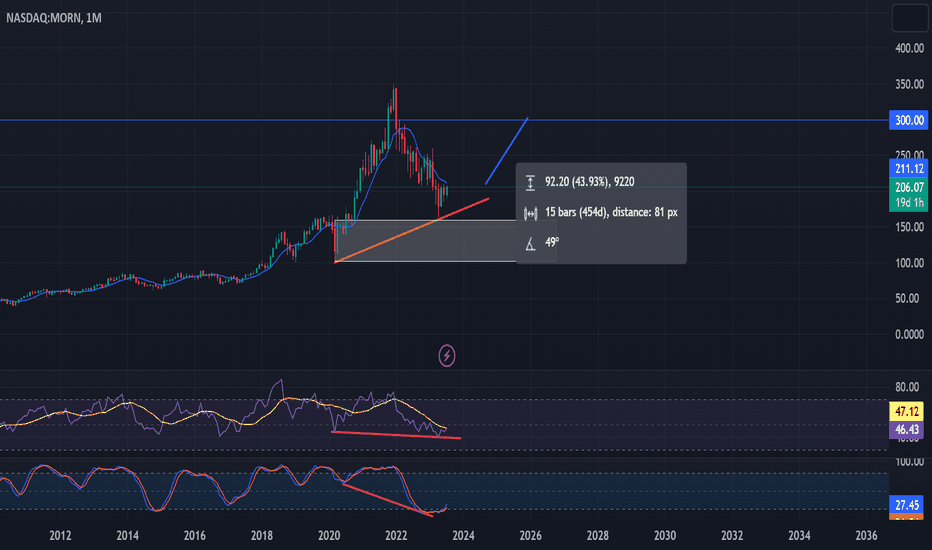Continuation of the Trend
- December 22, 2024
- Category: Blockchain

Bullish Divergence on the annual time frame indicating a continuation of the annual trend targeting $300.
Oversold stochastic showing that bears are loosing control and bulls are entering the market gaining the opportunity to earn some sweet dividend pay outs.
RSI indicating Market exhaustion the the downside is over and a bull run is beginning and will continue for the weeks and months ahead.
Enter: $206
SL: $180
Target 1:$250
Target 2: $300
Oversold stochastic showing that bears are loosing control and bulls are entering the market gaining the opportunity to earn some sweet dividend pay outs.
RSI indicating Market exhaustion the the downside is over and a bull run is beginning and will continue for the weeks and months ahead.
Enter: $206
SL: $180
Target 1:$250
Target 2: $300
Trade active
Target hit

